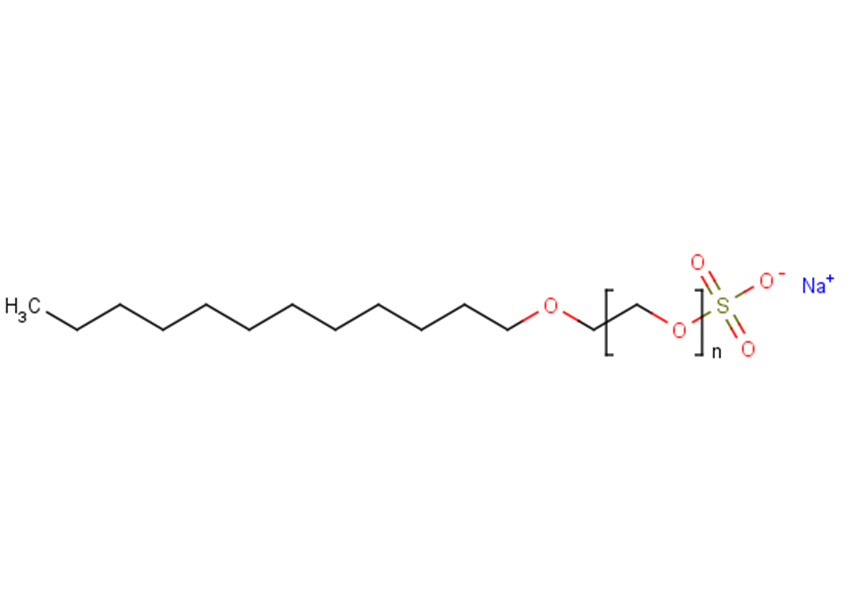
Sodium laureth sulfate
CAS No. 9004-82-4
Sodium laureth sulfate( Sodium lauryl polyoxyethylene ether sulfate )
Catalog No. M24931 CAS No. 9004-82-4
Sodium lauryl polyoxyethylene ether sulfate is an anionic surfactant, with excellent decontamination, wetting, emulsification, dispersion, solubilizing performance and foaming property.
Purity : >98% (HPLC)
 COA
COA
 Datasheet
Datasheet
 HNMR
HNMR
 HPLC
HPLC
 MSDS
MSDS
 Handing Instructions
Handing Instructions
| Size | Price / USD | Stock | Quantity |
| 500MG | 31 | In Stock |


|
| 1G | Get Quote | In Stock |


|
Biological Information
-
Product NameSodium laureth sulfate
-
NoteResearch use only, not for human use.
-
Brief DescriptionSodium lauryl polyoxyethylene ether sulfate is an anionic surfactant, with excellent decontamination, wetting, emulsification, dispersion, solubilizing performance and foaming property.
-
DescriptionSodium lauryl polyoxyethylene ether sulfate is an anionic surfactant, with excellent decontamination, wetting, emulsification, dispersion, solubilizing performance and foaming property.
-
In Vitro——
-
In Vivo——
-
SynonymsSodium lauryl polyoxyethylene ether sulfate
-
PathwayOthers
-
TargetOther Targets
-
RecptorOthers
-
Research Area——
-
Indication——
Chemical Information
-
CAS Number9004-82-4
-
Formula Weight——
-
Molecular Formula(C2H4O)n C12H26O4S . Na
-
Purity>98% (HPLC)
-
SolubilityH2O:31 mg/mL
-
SMILES——
-
Chemical Name——
Shipping & Storage Information
-
Storage(-20℃)
-
ShippingWith Ice Pack
-
Stability≥ 2 years
Reference
molnova catalog



related products
-
3,7,4-Trihydroxy-5-m...
3,7,4'-Trihydroxy-5-methoxy-8-prenylflavanone is a natural product.
-
yibeissine
Yibeissine is a steroidal alkaloid isolated from the bulb of?Fritillaria pallioiflora Schren.
-
TLC2976-0103
ROCK1-IN-1 is an inhibitor of ROCK1 with a K i value of 540 nM. ROCK1-IN-1 can be used in the research of hypertension, glaucoma and erectile dysfunction .



 Cart
Cart
 sales@molnova.com
sales@molnova.com


